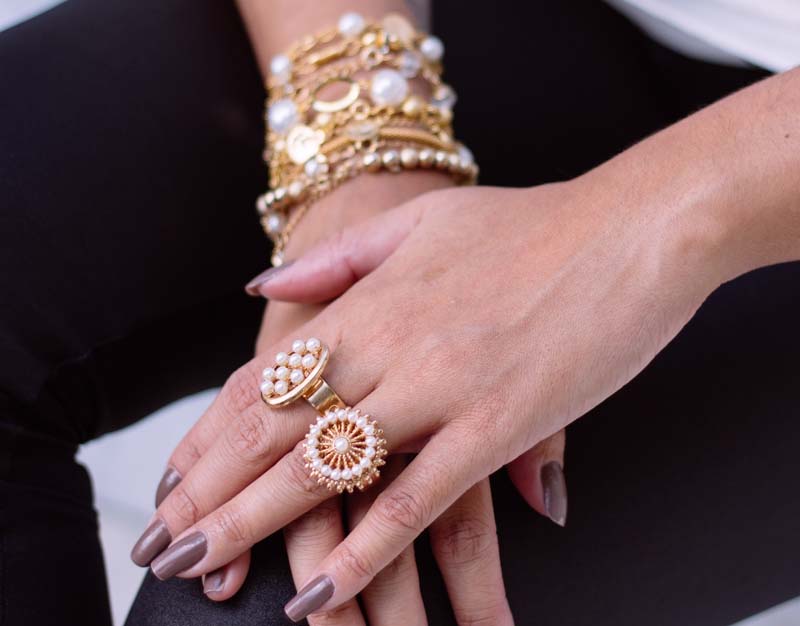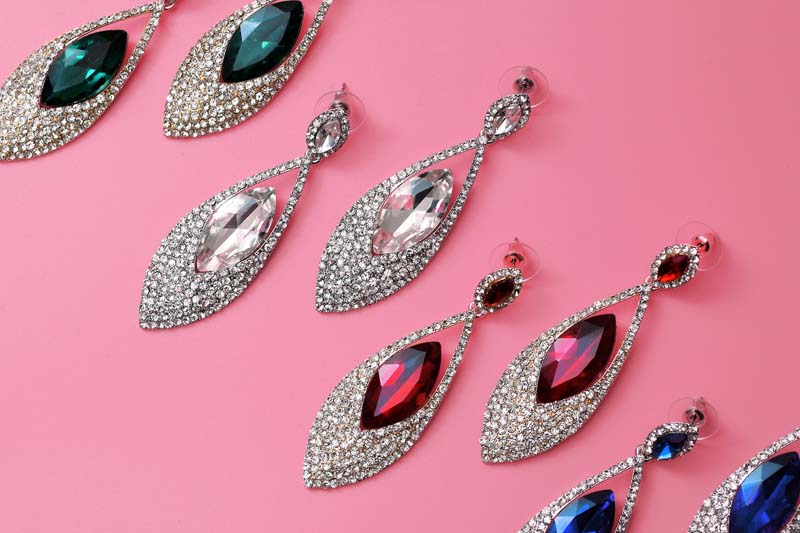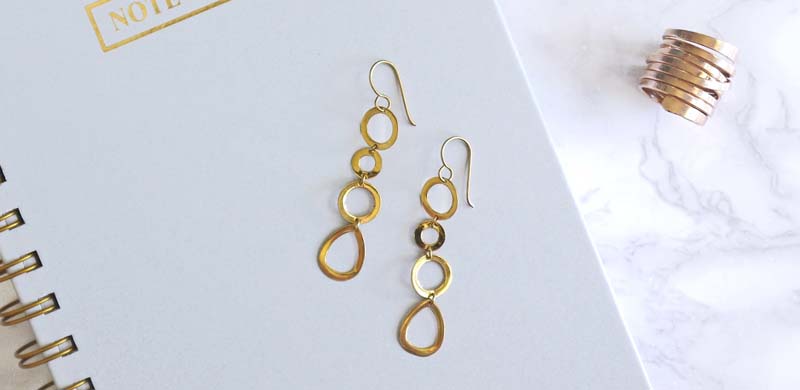THE GROWING INTEREST OF ETHICAL JEWELLERY
The jewellery industry has seen a surging shift in recent years, with a growing emphasis on ethical and sustainable practices. This transformation is evident in the rising popularity of ethical jewellery, which places importance on transparency, environmental responsibility, and fair labour practices. As consumers become increasingly aware of the impact of their choices, the demand for ethical jewellery continues to boom. There are various factors contributing to the burgeoning interest in ethical jewellery, as well as popular options and the challenges and opportunities within the industry. The goal is to shed light on this vital trend and encourage further engagement in responsible practices throughout the jewellery sector.
What is Ethical Jewellery?
Ethical jewellery encompasses pieces that are created with a focus on responsible sourcing, supply chain transparency, environmentally friendly materials and practices, and fair labour conditions. This means that from the extraction of raw materials to the final product, every stage prioritizes sustainability, human rights, and minimal environmental impact. Ethical jewellery reflects a commitment to upholding moral and ecological principles, ensuring that the beautiful adornments we wear do not come at the expense of the planet or its inhabitants.
Factors Driving the Growing Interest in Ethical Jewellery

As the world becomes more interconnected and information more accessible, it is necessary to uncover the driving force behind the interest in ethical jewellery.
1. Rising consumer awareness and demand for transparency
Today's consumers are more informed and conscious of the impact of their purchasing decisions. They seek transparency from brands and value products that align with their ethical beliefs. As a result, the demand for ethical jewellery is reflecting customers actively seeking out companies that prioritize sustainability, fair working conditions, and responsible sourcing.
2. Environmental concerns and climate change
Increasing apprehension surrounding climate change and its environmental effects has amplified the importance of adopting sustainable practices across various sectors, including the realm of jewellery. Traditional mining practices, no doubt, can be detrimental to the environment. Ethical jewellery addresses these concerns by utilizing eco-friendly materials and processes, thereby appealing to environmentally conscious consumers.
3. Influence of social media and celebrity endorsements
Social media has played a huge role in raising awareness about ethical jewellery, with influencers and celebrities showcasing and endorsing responsible brands. These public figures have the power to shape consumer preferences and amplify the message of sustainability, encouraging their followers to make more conscious purchasing decisions.
4. The role of certifications and third-party verifications
Certifications and third-party verifications have also become important in the ethical jewellery industry. These certifications offer a measure of confidence to buyers that the items they acquire adhere to particular ethical and ecological criteria. This has driven further interest in ethical jewellery, as customers can trust that their purchases are genuinely sustainable and responsible.
Additionally, Amnesty International have revealed an estimated death toll to “Blood Diamond” caused by civil wars.
Popular Ethical Jewellery Options

As the desire for ethical jewellery grows, the industry has responded by offering a range of innovative and sustainable options, which include:
1. Lab-grown gemstones
Ethical jewellery enthusiasts highly favour lab-grown gemstones like the ones offered by BIRON®. Being produced in regulated settings guarantees a conflict-free and eco-friendly for lab-grown gemstones. These stones share identical physical, chemical, and optical characteristics with mined gemstones, rendering them a captivating and sustainable alternative.
2. Recycled metals
Recycled metals are another ethical jewellery option that helps reduce the need for new mining and conserves valuable resources. By using metals reclaimed from electronic waste, old jewellery, or industrial scrap, jewellers can create stunning pieces that have a smaller environmental footprint.
3. Fairtrade gold and other responsibly sourced materials
Fairtrade gold and responsibly sourced materials are becoming increasingly sought after in the ethical jewellery market. These materials are obtained through supply chains that prioritize fair labour practices, environmental stewardship, and community development. Choosing these materials makes consumers confident that their jewellery is supporting positive change.
4. Handcrafted and artisanal jewellery
Handcrafted and artisanal jewellery offer a unique and personalized touch, while also promoting ethical practices. And supporting local artisans and small businesses, lets consumers know their jewellery is crafted with care and attention to detail. Additionally, these pieces often have a lower environmental impact, as they are made on a smaller scale and with fewer resources.

Challenges and Opportunities in the Ethical Jewellery Industry
The industry also faces its share of challenges, but these hurdles also present opportunities for growth, innovation, and positive change.
1. Challenges faced by ethical jewellers
Ethical jewellers encounter obstacles such as elevated production expenses, scarce availability of conscientiously sourced materials, and insufficient consumer knowledge regarding the advantages of ethical jewellery. Plus, maintaining transparent and traceable supply chains can be complex, as they often involve numerous stakeholders and processes.
2. Opportunities for growth and innovation
Although challenges exist, ample prospects for expansion and innovation are present within the sector. Technological advancements like blockchain serve to enhance the transparency of the jewellery supply chain, while the discovery of better manufacturing techniques can foster more eco-friendly practices.
3. The role of technology in promoting ethical practices
Technology greatly helps in advancing ethical practices within the jewellery industry. Innovations such as lab-grown gemstones and 3D printing can reduce the environmental impact of production, while technologies like blockchain can enhance supply chain transparency and traceability. As the industry continues to adopt and develop new technologies, the potential for creating a more sustainable and responsible future for jewellery becomes ever more achievable.
The growing interest in ethical jewellery signifies a positive shift towards responsible and sustainable practices within the industry. As consumers, brands, and stakeholders continue to embrace and promote ethical alternatives, the jewellery sector can become a shining example of how beauty and sustainability can harmoniously coexist.
Hits: 5306 | Leave a comment


















